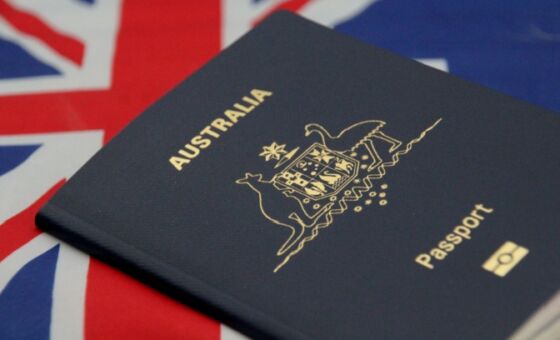Key points:
- If you require medical treatment while on holiday, the costs can be substantial, so appropriate insurance cover is important.
- Health insurance policies tend to have strict rules around what counts as a pre-existing condition, so reading the fine print matters.
- Travel insurance policies now cover a certain number of pre-existing conditions as standard, with certain strict criteria.
What is a pre-existing medical condition?
For insurance purposes, a pre-existing medical condition is a condition that you had prior to the commencement of your insurance cover. As for how insurance providers may actually classify a pre-existing condition, the rules can vary. Depending on the provider, a pre-existing condition can be something for which you have previously sought medical advice or taken medication, for which you have been hospitalised or had surgery within a certain time period (often 12-24 months). It can also be a condition for which you have displayed symptoms but have not yet been treated, or are waiting for a specialist opinion. Chronic or ongoing illnesses or conditions are also generally considered to be pre-existing. To find out exactly how an insurance provider defines a pre-existing condition, though, it is important to read the fine print of any policy documents., such as the product disclosure statement (PDS).
Why should I take out travel insurance for my pre-existing conditions?
If you plan on travelling while you have a pre-existing condition, then travel insurance can provide you with important peace of mind. If you require treatment or hospitalisation on your trip, the expenses associated can be significant, and you can find yourself greatly out of pocket.
The Australian government’s Smartraveller website says that medical assistance tends to be the highest unexpected cost for Australians travelling overseas, and that most countries won’t provide free or subsidised care, meaning that you or your insurance provider will need to pay full price. At times, hospitals overseas may refuse to treat you unless you pay up front or provide your insurance details, and even countries that have reciprocal health agreements with Australia may require you to pay certain costs.
If you have a pre-existing condition, then, it’s all the more important to take out an appropriate form of travel insurance, to know that you’ll be covered should you face medical expenses on your trip. If you have a pre-existing condition, even one that you take medication for, you may still be able to purchase travel insurance that will cover you. While there are certain situations in which pre-existing conditions will not be covered by travel insurance, there are other conditions which are covered as standard.
It’s important, however, that you disclose any conditions you have or medications you are taking when you take out your policy. Doing so will mean that your insurer can provide you with appropriate cover and that your claim won’t be denied if it relates to a pre-existing condition that your insurer wasn’t aware of.
What pre-existing conditions are included in travel insurance?
The exact conditions that are covered by a travel insurance policy will vary based on the provider. As an illustrative example, at the time of writing, insurance provider Cover More says that it covers the following pre-existing conditions, with certain additional criteria applying:
- Acne
- ADHD
- Allergy
- Anxiety
- Asthma
- Bell’s palsy
- Bunions
- Carpal tunnel syndrome
- Cataracts/glaucoma
- Coeliac disease
- Congenital blindness
- Congenital deafness
- Depression
- Ear grommets
- Epilepsy
- Gastric reflux
- Goitre
- Graves’ disease
- Gout
- Hiatus hernia
- Hip/knee/shoulder replacement or hip resurfacing
- Hypercholesterolaemia (high cholesterol)
- Hypertension (high blood pressure)
- Migraine
- Peptic ulcer/gastric ulcer
- Plantar fasciitis
- Raynaud’s disease
- Skin cancer
- Stenosing tenosynovitis (trigger finger)
- Urinary incontinence
- Underactive/overactive thyroid
While all these conditions are covered, further criteria apply to some. For example, the eligibility criteria for some of the conditions in the above list stipulate that you must not have received treatment or been hospitalised for the condition in the past 12 months, or that the condition has been stable for a period of time.
Other eligibility criteria will typically apply, and each insurance provider may vary in the pre-existing conditions covered, so before signing up for any travel insurance product, it’s important to read all policy documents and understand the find print, to make sure you meet the criteria and your condition won’t be excluded.
What pre-existing medical conditions are excluded from travel insurance?
There are some situations in which pre-existing conditions will not be covered at all by your travel insurance – for example, if you suffer from any of a number of chronic illnesses, you may still be able to take out travel insurance, but any claims for medical expenses arising from these particular conditions will not be covered.
There is no definitive list of pre-existing conditions that are not covered by travel insurance, generally speaking, you will not be covered if:
- You have a terminal illness
- You are awaiting any kind of treatment or medical procedure for your condition
- You have certain types of cancer or congestive heart failure
- You have lung or cardiovascular disease
- You have a condition requiring continuous oxygen supply
- Your condition is a result of drug or alcohol dependency
- You have received treatment for your condition within a certain timeframe
The above list is not exhaustive, so it is important to read the policy documents associated with your insurance policy carefully, disclose any medical conditions when taking out cover, and if necessary, contact your insurance provider directly to find out if your pre-existing condition excludes you from cover.
Likewise, it is important to note that even if your condition is not itself excluded from your cover, you may still find that your claim is denied if your insurance provider finds out that you are travelling against medical advice.
Why should I disclose pre-existing medical conditions for travel insurance?
When taking out any form of insurance policy, including travel insurance, it is important to be honest with the insurance provider. If you fail to disclose any pre-existing conditions to your provider and you require treatment while overseas, your claim may be denied and you may be left out of pocket. Likewise, if you need to cancel your trip as a result of a pre-existing medical condition that has not been disclosed, you could run the risk of losing out on cover for prepaid travel costs that would otherwise have been included.
Cover image source: fizkes/Shutterstock.com








